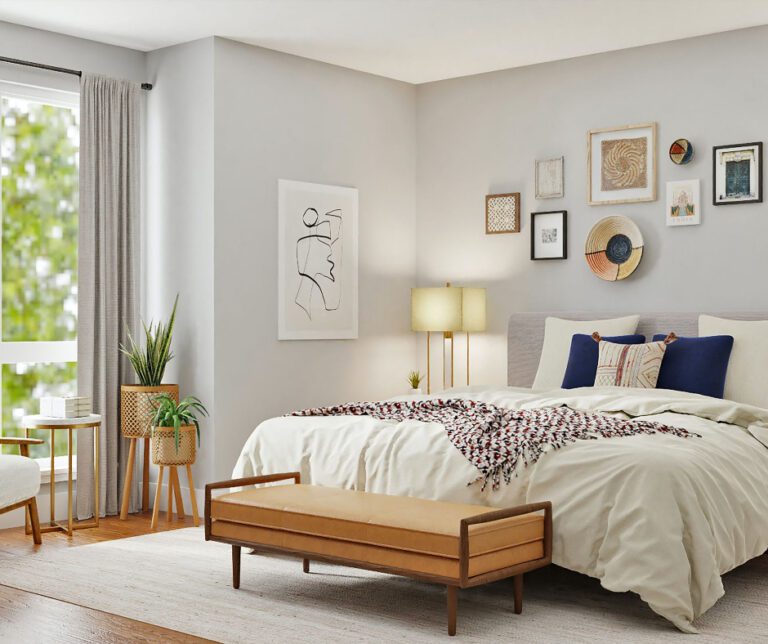Greening Your Space: Embracing Bamboo in Modern Home Decor

In today’s environmentally conscious world, there is a growing interest among consumers in sustainable and eco-friendly home decor options. People are increasingly looking for ways to create greener living spaces that align with their values. One popular trend in interior design is the incorporation of natural elements like bamboo, known for its sustainability and versatility, into home decor. Bamboo’s unique properties make it an ideal choice for those aiming to bring a touch of nature indoors while contributing to a more eco-friendly lifestyle.
Benefits of Bamboo in Home Decor
Bamboo is considered a sustainable material for home decor due to its rapid regeneration rate, making it an environmentally friendly choice. Its strength and durability make it suitable for crafting furniture and decor items that stand the test of time, ensuring longevity in design. Additionally, bamboo’s natural aesthetic appeals to modern consumers who seek a connection to nature within their living spaces, adding a touch of tranquility and warmth to the home.
Incorporating Bamboo Elements in Different Rooms
The versatility of bamboo allows for its seamless integration into various rooms of the house, bringing a natural touch to each space. From wall hooks to coffee tables, chairs, mirrors, rugs, and plant accessories, bamboo elements can enhance the aesthetic appeal of different rooms. Whether creating a minimalist look or a tropical oasis, bamboo’s light weight and ease of customization make it a popular choice for DIY home decor projects, enabling homeowners to personalize their interior spaces with a sustainable and natural flair.
Bamboo Trends in Global Markets
The versatility of bamboo extends beyond home decor, leading to its widespread use in various industries globally. From fashion to construction and even energy production, bamboo’s sustainable properties have sparked innovation and creativity across different sectors. Sustainable architecture projects are increasingly incorporating bamboo due to its strength, flexibility, and eco-friendly nature. The rising demand for eco-conscious products has prompted the development of new bamboo-based materials and applications, paving the way for a more sustainable and environmentally friendly future.
Sustainable Practices with Bamboo Products
In the world of sustainable practices, bamboo emerges as a frontrunner due to its environmentally friendly cultivation methods. Unlike traditional timber sources, bamboo cultivation requires significantly less water, making it an attractive choice for eco-conscious consumers aiming to minimize their water consumption. For instance, the cultivation of bamboo can thrive with minimal irrigation, showcasing its ability to flourish sustainably with fewer resources compared to other wood sources. This aspect not only highlights the eco-friendly nature of bamboo but also underlines its resilience in varying environmental conditions, contributing to a more sustainable approach to home decor and design.
The natural properties of bamboo extend beyond its growth habits to its physical characteristics, making it a versatile and health-conscious choice for various household items. The innate antibacterial qualities of bamboo set it apart as an ideal material for everyday essentials like cutting boards, utensils, and textiles. By incorporating bamboo-based products into their living spaces, consumers not only embrace a more sustainable lifestyle but also prioritize hygiene and well-being. This dual benefit underscores the multifaceted advantages of bamboo in fostering a healthier living environment while reducing the ecological impact of conventional materials.
Market Growth and Demand for Bamboo Decor
The market for bamboo products is experiencing a substantial surge, propelled by several key factors. One significant driver is the heightened consumer consciousness surrounding sustainability, with more individuals actively seeking eco-friendly options for their homes. This trend aligns with the growing global movement towards environmentally responsible choices, making bamboo decor an appealing solution for those looking to reduce their ecological footprint.
Advancements in bamboo processing technologies have revolutionized the industry, enabling the creation of innovative products that cater to diverse consumer needs. For instance, the development of engineered bamboo flooring has not only enhanced the durability and aesthetic appeal of bamboo but has also expanded its application in various architectural and interior design projects. Additionally, the introduction of prefabricated bamboo structures showcases the versatility of bamboo in construction, offering sustainable alternatives for building materials and promoting eco-conscious building practices.
As the demand for sustainable home decor continues to rise, the market for bamboo furnishings, decor accents, and textiles is expected to expand exponentially. Consumers are increasingly prioritizing sustainability in their purchasing decisions, driving the need for eco-friendly options like bamboo that not only align with their values but also offer durability, style, and functionality. This consumer shift towards sustainable living is reshaping the home decor industry, emphasizing the importance of environmentally friendly materials like bamboo in creating beautiful and eco-conscious living spaces.
Few plants offer the strength and beauty that bamboo does. It is truly a plant of emmaculate design.
Learn More about the uses for bambooWe are dedicated to the promotion and use of bamboo throughout the world. Bamboo is a plant that offers limitless potential for the future. It offers us strength, sustainability, versatility, and a green alternative.
Bamboo Grove on Twitter
Bamboo Grove YouTube Channel
Moline, IL
info@bamboogrove.com